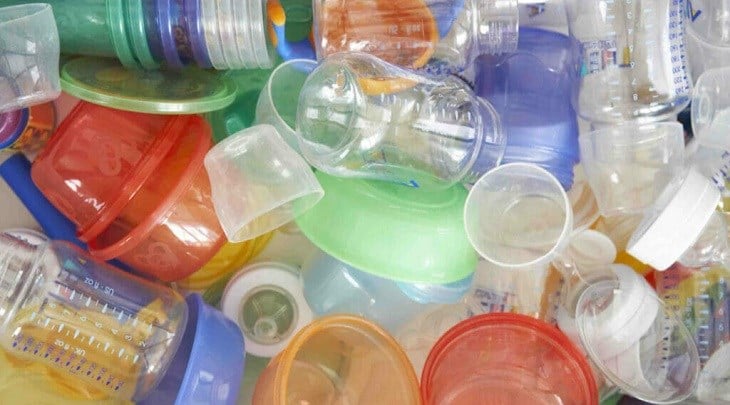In today’s fast-paced world, we often overlook the potential dangers that everyday objects can pose to our health. A seemingly harmless item, such as a drinking glass, can actually be a hidden health hazard if not chosen wisely. According to experts, an unsafe plastic drinking glass can be the “culprit” behind serious health issues, akin to “drinking poison daily” without our knowledge.

Unsafe plastic drinking glasses: A hidden health hazard
The Dangers of Substandard Plastic Drinking Glasses
Plastic drinking glasses have become a common choice for many families due to their convenience and ease of use. However, what most people don’t realize is that these glasses can pose a significant health risk if made from low-quality plastic, especially those containing BPA (Bisphenol A) – a chemical that can be harmful to the human body.
Nutritionist expert Nguyen Thi Lan Anh, a lecturer at Ho Chi Minh City University of Medicine and Pharmacy, shares her concerns: “BPA is a chemical used in plastic manufacturing to harden the material. However, when exposed to high temperatures or used for extended periods, BPA can leach into food or water and subsequently enter our bodies. Research has linked BPA to serious health issues such as cancer, hormonal imbalances, reproductive problems, and adverse effects on child development.”
The adverse effects of BPA go beyond just health issues; it can also disrupt the body’s organs, particularly the endocrine system, leading to an increased risk of breast cancer, prostate cancer, infertility, and even negative impacts on fetal development.
According to a report by the World Health Organization (WHO), BPA has been proven to interfere with the human endocrine system, resulting in problems like obesity, diabetes, and even psychological issues such as depression and anxiety. Prolonged exposure to BPA can lead to toxic buildup in the body, severely affecting the health of family members, especially pregnant women and children.
Choosing Safe Drinking Glasses
To safeguard your family’s health, it is crucial to make the right choice when it comes to drinking glasses. Experts advise families to opt for glasses made from safe materials such as glass, ceramic, or BPA-free plastic. These alternatives ensure not only health safety but also ease of cleaning and maintenance.
Following the advice of nutritionist expert Nguyen Thi Lan Anh, “If you still prefer plastic glasses, choose types of plastic that are clearly labeled as BPA-free, such as type 5 plastic (Polypropylene). Additionally, avoid using scratched or deformed plastic glasses as they can easily release harmful chemicals when exposed to high temperatures.”
Another important reminder is to refrain from using plastic glasses, especially old ones, with hot water or beverages. High temperatures can accelerate the leaching of BPA, posing a health hazard. Therefore, if your family is using old or long-used plastic glasses, you may be unknowingly “drinking poison” every day.
Nowadays, there is a wide range of high-quality drinking glasses available on the market, made from safe materials such as glass, ceramic, or BPA-free plastic. Reputable brands like IKEA, Lock & Lock, and Tupperware assure their customers of using safe, BPA-free plastic in their products. You can find these products at trusted retailers or large supermarkets to ensure the health and well-being of your family.
In addition to choosing safe drinking glasses, proper cleaning and maintenance are essential. Make sure to thoroughly clean the glasses after each use, especially plastic ones. Also, avoid using glasses with cracks or scratches as these provide an ideal environment for bacterial growth.
While plastic glasses may offer convenience, it is vital to select and care for them properly to safeguard your family’s health. If you and your family are still using low-quality plastic glasses, especially those containing BPA, you are potentially “drinking poison” daily. Opt for drinking glasses made from safe and high-quality materials to protect your loved ones’ health.
The Tuber with the Highest Microplastic Content: Unknowingly Consumed by Many Vietnamese Daily
Recent studies have revealed a shocking truth: carrots, the humble root vegetable, are laden with microplastics. These tiny plastic particles, invisible to the naked eye, have infiltrated our food system and could potentially impact our health. This eye-opening discovery sheds light on the pervasive nature of plastic pollution and raises concerns about the unseen dangers lurking in our everyday lives.



































